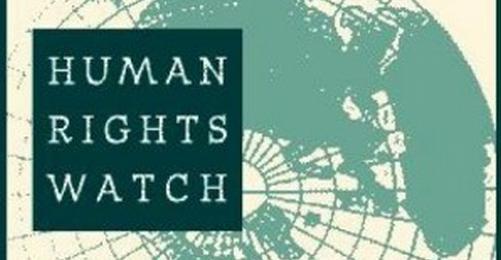"A major legal reform package to be introduced by the Turkish government leaves key problems with free speech and arbitrary detention unresolved" Human Rights Watch (HRW) announced on 13 February.
The "Draft Law to Enhance Judicial Services and for the Postponement of Trials and Punishments related to Crimes Committed via the Media", known as the 3rd Judicial Package is expected to be discussed in parliament soon. On 1 February, the draft bill was put into operation by the Presidency of the Turkey Grand National Assembly (TBMM).
"When it comes to tackling Turkey's big human rights challenges, this reform package is little more than window dressing," said Emma Sinclair-Webb, Turkey researcher at Human Rights Watch. "If the government is serious about reform, it needs to be far bolder and abolish laws restricting free speech or clearly limit their application to those who directly incite violence."
The proposed changes fail to reform terrorism laws widely misused against journalists and pro-Kurdish activists, Human Rights Watch said. One provision provides that courts would enjoy the power to suspend prosecutors' investigations or sentences handed down to journalists, but on condition that the journalists do not repeat their alleged offense, a condition that would amount to censorship.
Journalists will not benefit from the draft bill
One of the amendment extends the use of bail or probation rather than detention for defendants facing trial for crimes with a five-year maximum prison sentence. This should cut down the widespread use of pretrial detention in Turkey, particularly for those charged with more minor terrorism offenses, Human Rights Watch said. The measure would not, however address the situation of hundreds of people facing sentences of five to ten years, such as journalists, charged with membership of an armed organization (article 314/2 of the Turkish Penal Code), a charge frequently leveled despite the absence of any evidence of their involvement in violence or in plotting violent activities.
In a move aimed at responding to international criticism about the unwarranted prosecution of journalists and editors, the draft law paves the way for the suspension of criminal investigations, trials or penalties for offenses "committed up to 31 December 2011 by means of the press or broadcasts or by means of other expressions of thought" that carry a maximum sentence of five years in prison. But again, this measure would not apply to journalists and editors charged with membership of an armed organization.
Positive Steps
A positive step and the clearest move to uphold media freedom in the draft law is a provision that would repeal article 6/5 of the Anti-Terror Law allowing prosecutors and courts to suspend for up to 30 days newspapers and magazines that are accused of certain offenses such as "making terrorist propaganda." In recent years, European Court of Human Rights rulings against Turkey have found the practice amounts to censorship and a violation of the right to freedom of expression.
Hesitant attitude
While suspending criminal investigations and sentences for violations of free speech is a positive move, the government has avoided taking the necessary step of repealing the large number of laws that are an unjustified restriction on free speech. And those whose cases are suspended must not reoffend for three years or face renewed prosecution or sanction for the original case.
"If the government is sincere about law reform to protect people's rights, then it needs to revise these proposed half measures and finish the job," Sinclair-Webb said. (YY)
Source: Human Rights Watch.
Click here to read the full press release.









